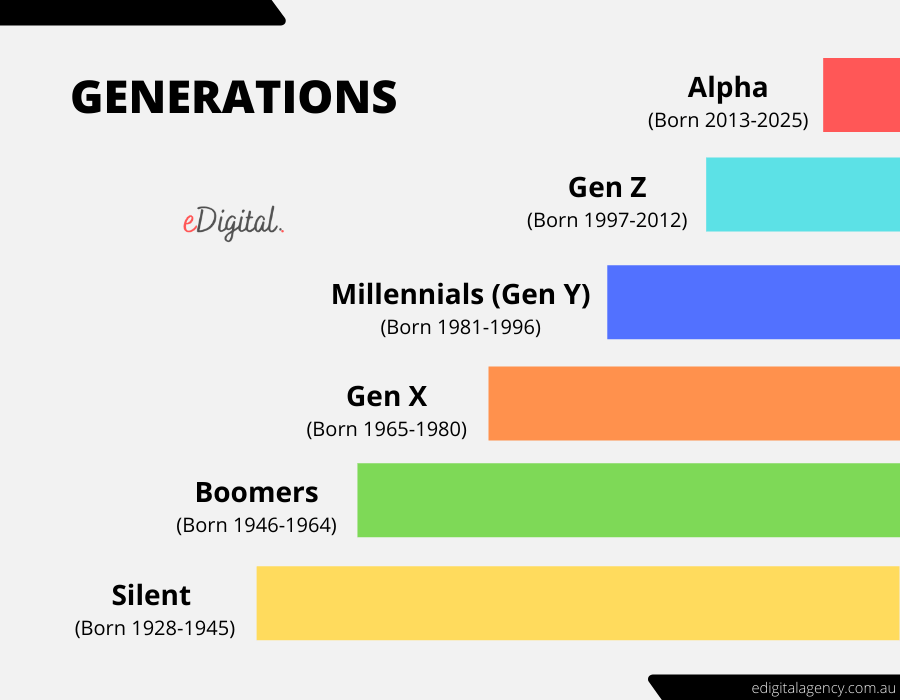What Years Are Gen Z?

Generation Z, also known as Gen Z, is the demographic cohort that follows the Millennial generation. Born between the mid-1990s and the early 2010s, Gen Z is a diverse and tech-savvy generation that has grown up in a world shaped by rapid technological advancements and global events. In this article, we will delve into the specific years that define Gen Z and explore the characteristics and influences that have shaped this generation.
1. Defining the Birth Years of Gen Z
Determining the exact years that define Gen Z can be a subject of debate among experts. However, most sources agree that Gen Z includes individuals born between the mid-1990s and the early 2010s. The starting point of Gen Z is often set around 1995, as this marks a significant shift in technology and cultural influences. The ending point varies, with some sources suggesting it to be around 2010, while others extend it to 2012 or later. The defining factor for Gen Z is that its members were born into a world where technology was already prevalent, distinguishing them from the preceding generations.
2. Characteristics of Gen Z
Gen Z is characterized by its digital nativity and reliance on technology. Growing up in an era of smartphones, social media, and constant connectivity, Gen Z has developed a unique set of skills and traits. They are often referred to as “digital natives” due to their fluency in using technology from an early age. This generation is highly adaptable and quick to embrace new technologies and platforms.
Moreover, Gen Z is known for its diversity and inclusivity. This generation has grown up in a more multicultural society, with greater acceptance of different races, ethnicities, and gender identities. Gen Z tends to be more socially conscious and politically engaged than previous generations, often advocating for social justice issues such as climate change, racial equality, and LGBTQ+ rights.
3. Influences Shaping Gen Z
Several key influences have shaped the attitudes and behaviors of Gen Z. One significant factor is the impact of social media. Gen Z has grown up with platforms like Facebook, Instagram, and Snapchat, which have shaped their communication styles and self-expression. Social media has also given Gen Z a platform to voice their opinions, connect with others globally, and mobilize for causes they believe in.
Another influential factor is the Great Recession of 2008. Many Gen Z individuals witnessed the economic struggles faced by their families during this time, which has influenced their financial mindset and career aspirations. Gen Z tends to be more financially cautious and entrepreneurial, seeking stability and independence in their professional lives.
Furthermore, Gen Z has been deeply affected by global events such as terrorism, climate change, and the COVID-19 pandemic. These events have heightened their awareness of global issues and instilled a sense of urgency to address them. Gen Z is often characterized as pragmatic and realistic, with a focus on finding practical solutions to the challenges they face.
4. Gen Z in the Workplace and Education
As Gen Z enters adulthood, they are reshaping the workplace and education systems. This generation values flexibility, work-life balance, and opportunities for personal growth. They are more likely to prioritize job satisfaction and purpose over traditional markers of success like high salaries or job security. Gen Z also seeks continuous learning and development opportunities, often favoring companies that offer mentorship programs and professional development resources.
In education, Gen Z prefers interactive and experiential learning methods over traditional lectures. They thrive in collaborative environments that encourage creativity and critical thinking. Technology plays a crucial role in their education, with online resources, virtual classrooms, and e-learning platforms becoming increasingly prevalent.
Conclusion:
Gen Z, born between the mid-1990s and the early 2010s, is a generation defined by its digital nativity, diversity, and social consciousness. Shaped by technological advancements, global events, and social media, Gen Z exhibits unique characteristics and influences. As they enter the workforce and education systems, Gen Z is reshaping traditional norms and demanding a more flexible and purpose-driven approach. Understanding the defining years of Gen Z and their distinct traits is essential for businesses, educators, and society as a whole to effectively engage and support this generation.






